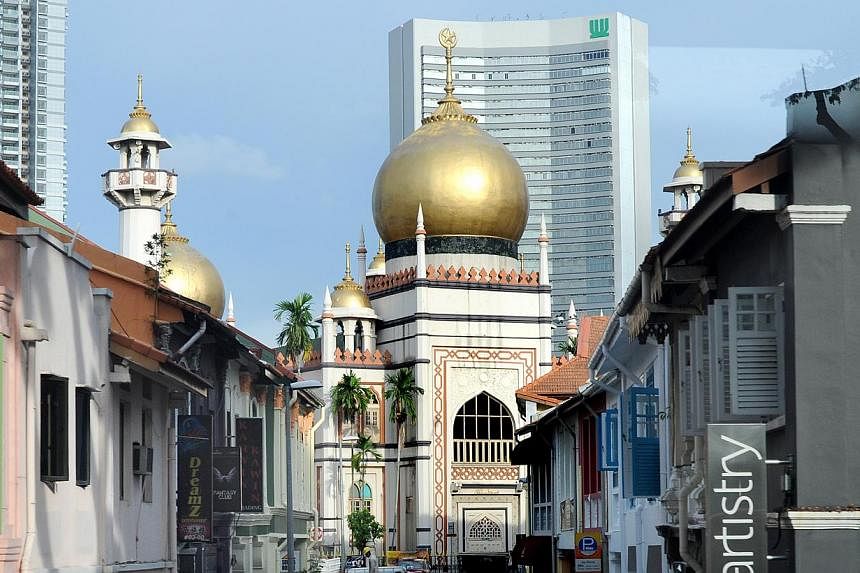An extensive survey to take stock of how well mosques here have done in serving Muslims will be conducted over this month and the next.
The survey will involve 1,000 Muslims aged 15 and above, in the first such study commissioned by the Islamic Religious Council of Singapore (Muis). It usually gets feedback through focus group discussions or snap polls instead.
The survey seeks to measure how effectively mosques have met the expectations and needs of the Muslim community,said Muis.
It aims especially to see how well a five-year masterplan for the mosque sector - unveiled in 2011 - has been carried out.
The face-to-face interviews will cover various aspects of mosques, such as facilities, inclusivity of leadership - whether this involves women and young people - satisfaction with services, and mosques' impact in dealing with Muslims' social challenges.
Muslims who hardly go to mosques and non-Malay Muslims will also be polled, Muis said.
While Muis has previously conducted public perception surveys, the latest is the first to focus on mosques, which have played a bigger role over the years.
From 2007, mosques took over social assistance roles previously concentrated at Muis, such as the disbursement of financial help. This addressed low-income families' problems more quickly, as mosques are closer to the ground.
Ustaz Khair Rahmat from Sultan Mosque said mosques have been playing a bigger role in bonding the Muslim community.
"There have been more approaches to get more Muslims to go to mosques, through not only religious programmes, but social programmes too," he said.
There are 68 mosques here, grouped into six clusters which roughly correspond to the five grassroots districts. The central district has two mosque clusters.
Muis reported in 2011 that low-income Muslims tend to have lower religious literacy and participation.
A 2010 Muis study found that half of the 1,000 respondents never went or hardly go to mosques.
Associate Professor Noor Aisha Abdul Rahman, head of the Malay studies department at the National University of Singapore, sees the latest study as a follow-up to the 2011 plan and said it was "better late than never".
Retiree Azman Abdullah Poh Geok Teck, 73, welcomed the survey, though he hardly goes to a mosque. "It's good that they want to get feedback more directly from the Muslim community," said the Chinese Muslim, who has a Malay wife.
He said he knows of assistance schemes open only to Malay-Muslims, and hopes this will change.


